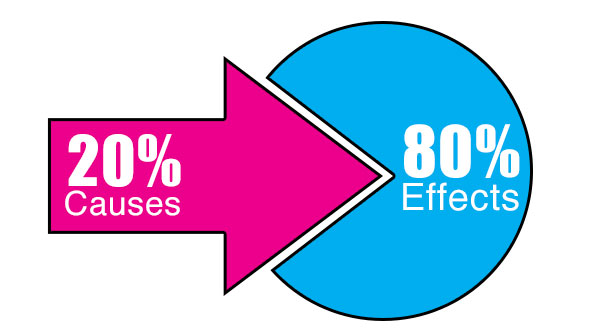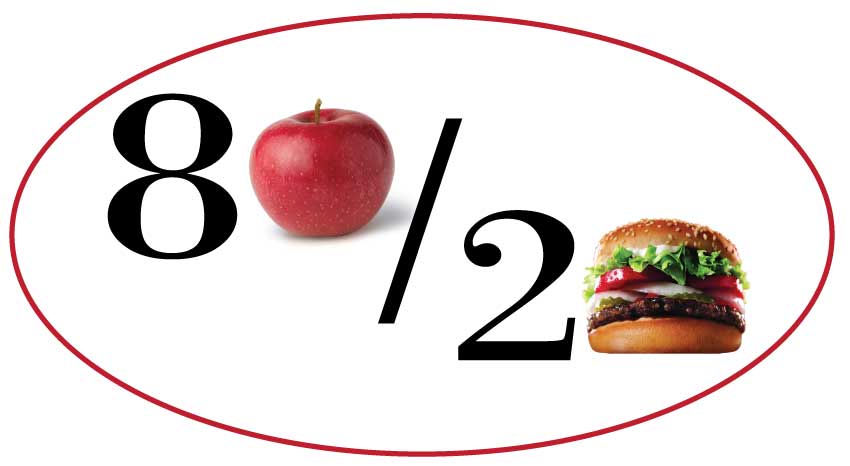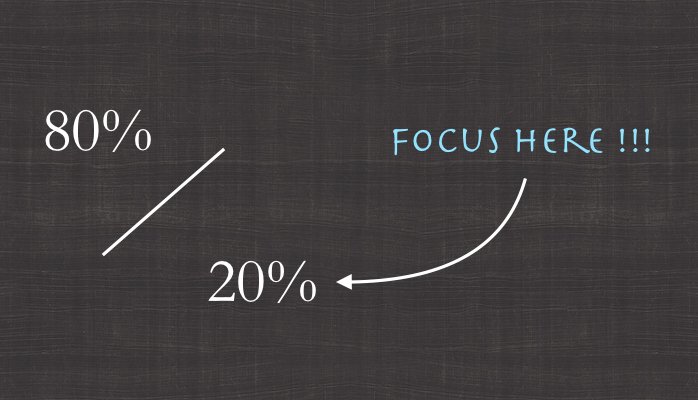80/20 Principle and know-how to create a happy life
One day, Italian economist Vilfredo Pareto found that every year, every 20% of the beans in his garden produce exactly 80% of the beans. From here, he began to understand this mechanism in companies and many other areas. The results show that 80% of the outputs are usually made up of 20% of the most productive inputs.
Later, people know this as Pareto's principle, also known as the 80/20 principle and is widely applied in many fields of economy and society.
The 80/20 principle confirms that 80% of the results you get come from just 20% of what you spend.
Historically, this principle is considered the most popular in the field of business administration. Because the fact that 20% of customers advertise 80% of a company's revenue, 20% of salespeople decide to 80% of sales or 20% of the total cost creates 80% of the results. .
In terms of time management, they often find that 20% of the time creates 80% of productivity and 20% of employees create 80% of the value for an organization.
The examples that illustrate the Pareto principle are numerous and certain, this is only a relative number because no one can confirm the 100% accuracy of this 4/1 ratio. Whether it is 76/24 or 83/17, they are thought to have similar meanings.

80/20 principle in life
What should be emphasized here is that the 80/20 principle is not only applied in business but also in life. However, not everyone knows how to use this principle to improve quality of life.
Such as:
- 20% what kind of assets are you currently possessing the highest value?
- What do you spend 20% of your time on, giving you 80% happiness?
- 20% of people help you feel 80% happy with them, who are they?
- 20% of what clothes do you wear 80% of the time?
- 20% of any food that 80% of the time is spent eating, do you eat it?
The surprise is that these questions are easy to answer and you don't need to consider too long to find the answer.
Once determined, you can easily focus on these things to increase your life's productivity. For example, 80% of the people who spend time connecting with them only make you feel 20% happy, it is best not to be around them too much. Or 80% of the clothes that you wear only about 20% of the time in your life is best to sell or give away to others.

Identifying 20% of the foods you regularly eat (accounting for up to 80% of your eating time in your life) will explain whether you are maintaining a healthy diet and how healthy you are. how? Also make sure to switch to a diet where 20% of the food you eat in 80% of that time is nutritious and helps you get more energy.
When I first considered applying the 80/20 principle to my life, I immediately realized something:
- Only a few hobbies (watching TV shows and video games) make up 80% of my time, but they only give me 20 satisfying feelings.
- 80% of the time I meet with people I don't really feel happy about.
- 80% of the money I have spent on things that are not useful and do not do anything.
Finally, I had more motivation to change and review options. I watch less TV and play games. I recognize who is important to me and consider more carefully when deciding to buy something.
80/20 principle at work
Which jobs you spend 80% of the time, but they only yield 20% of the results (such as checking email continuously, writing Memo, taking time to make unimportant and unnecessary decisions . )?
20% of what will help you win 80% of your trust and recognition from your colleagues or boss?
And finally, you should also apply the 80/20 principle to your emotional life and relationships. What 20% of the behaviors do you encounter 80% of the emotional problems? Which 20% of the conversations generated 80% of your intimacy with your partner?

These are very important questions that most of us never ask ourselves.
The 80/20 principle is not meaningful for every aspect of good life in everything we do. It is not only effective but also helps each person to control and spread those good things to others. It is something that we can take responsibility for and improve to become better.
What changes can you make in your life based on this principle?
One of the most obvious answers is that it is the property each person owns. High possibility that 80% of what you have only brings a very small amount of happiness or satisfaction.
Right now, sit down and think about it, even, you can write down paper to get a better view of what will help you get the greatest happiness in life.